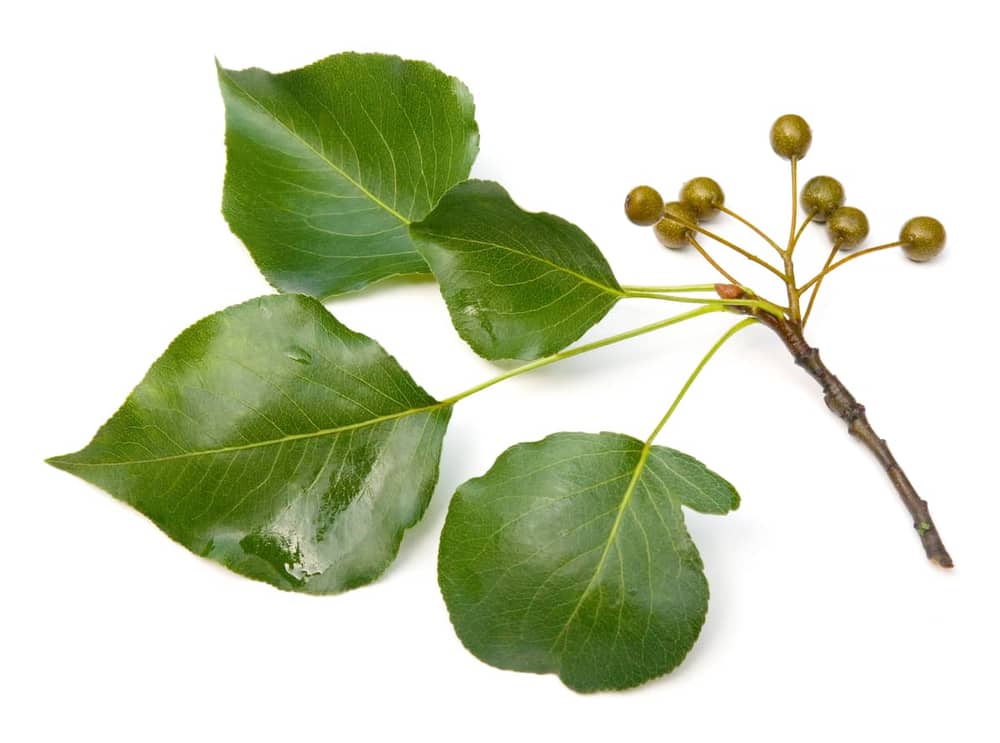In landscapes in urban and suburban areas around the country, Bradford pears are a well-liked ornamental tree species. These trees are prized for their beautiful fall leaves and charming spring blossoms. Do deer eat Bradford pears is one of the most often asked topics regarding them.
Deer are well recognized for being opportunistic feeders, and depending on the time of year and what is available, they will eat a broad variety of plant species. While some plant types are more enticing to deer than others, some are more resistant to them. Since Bradford pear trees are frequently planted in residential areas where deer populations are frequently present, the subject of whether or not deer consume Bradford pears is particularly pertinent.
This essay will investigate the issue of deer consumption of Bradford pears. We also give some insight into the variables that might affect how they feed. We’ll also go through some methods for preventing deer from harming Bradford pears and offer some ideas for substitute tree species that might be more deer-resistant.
Table of Contents
Do Deer Eat Bradford Pears?

The gorgeous white blossoms and quick growth of Bradford pear trees make them a popular choice for landscaping. Deer can seriously harm trees and gardens, therefore many people are curious if they consume Bradford pears. The answer to this query is that Bradford pears are indeed consumed by deer.
Deer are notorious for their ravenous appetites and may consume a wide range of plants, including trees and bushes. Even though Bradford pears are not their preferred food source, deer will consume them if there are no other options available. In fact, some studies have shown that deer favor Bradford pear trees above other types of trees for food.
When eating Bradford pear trees, deer frequently target their delicate leaves and shoots. This can seriously injure the tree, especially if it is young or has a small canopy. Deer damage may increase the tree’s susceptibility to disease and other issues. This could further impair its development and wellbeing.
Since pears are non-toxic, deer can consume Bradford pear trees and their fruits. The fruits of the Bradford pear tree are easily digestible by deer. Furthermore, Bradford pears’ sweet flavor appeals to deer. One of deer’s preferred fruits is thought to be Bradford pears.
How To Prevent Deer From Eating Bradford Pears?
Many homeowners appreciate Bradford pear trees for their beauty and quick growth as decorative trees. Deer, who enjoy eating them, can seriously harm these trees because they are a favored food source for them. Fortunately, homeowners may take a number of precautions to stop deer from munching on their Bradford pear trees.
Install Barriers
Physical barriers are one efficient way to stop deer from damaging Bradford pear trees. To keep deer out of the trees, you might install fencing or netting around them. The fencing or netting must be high enough to prevent deer from jumping over it and securely fastened to the ground to prevent deer from crawling under it.
Deer Repellents
Using deer repellents is another way to stop deer from consuming Bradford pear trees. These deer repellents are available as sprays or granules that create an unpleasant odor or flavor. To create a barrier that deer will avoid, they can be placed directly to the tree or to the surrounding area. Reapplying repellents frequently is necessary to maintain their efficacy, it is crucial to mention.
Planting Other Types Of Vegetation
Another way to stop deer from eating Bradford pear trees is to plant other kinds of plants that they don’t find as appetizing. Deer can be kept away from trees, for instance, by planting daffodils, alliums, or other deer-resistant bulbs nearby. By growing other trees or shrubs that are less appealing to deer, Bradford pears can be kept off of the ground.
Deer can seriously harm Bradford pear trees, but there are a number of precautions that homeowners can take to avoid this harm. Homeowners can safeguard their Bradford pear trees and ensure their health and lifespan by erecting physical barriers, employing deer repellents, and planting other kinds of vegetation.
What Kind Of Pear Do Deer Like?
It is well known that deer consume a variety of vegetables in their diet. Pears occur in many different types, some of which deer prefer more than others.
Bartlett Pear
The Bartlett pear, commonly known as the common pear or European pear, is one pear variety that deer particularly appreciate. This particular variety of pear is a favorite of many animals, including deer, due to its sweet flavor and soft texture. Furthermore, the Bartlett pear’s fruit ripens in late summer and early fall, which is also when deer are searching for food to stock up for the winter.
Ornamental Pears
Pears for ornamentation are grown in gardens for the aesthetic value they provide. For deer and other animals, they are a poor source of food.
Deer, however, don’t have particular food preferences, therefore they occasionally treat themselves to nibbling ornamental pear leaves. No toxin that could damage deer is present in ornamental pears.
Cleveland Pears
This tree is well known for being ornamental. They are raised in the garden to improve the property’s landscape beauty. But they are quite effective at luring various birds and animals.
Cleveland pears have the ability to draw a variety of animals, including deer. If there is no other food available, deer can be spotted consuming Cleveland pear leaves.
Asian Pear
Deer also enjoy Asian pears, which have a crisp, juicy texture and a mild, sweet flavor. Because of their distinctive round shape and golden-yellow tint, Asian pears are simple for deer to identify. They ripen during the peak deer activity period, which is late summer to early fall.
Prickly Pears
Cactus pears and opuntia pears are other names for prickly pears. Prickly pears’ texture may lead you to believe that deer do not consume them.
Yet, this is untrue because deer adore eating prickly pears and do so anytime they get the chance. It is regarded as a nutritious feeding option for deer.
Do Deer Eat These Parts Of Pears?
It is well known that deer are opportunistic herbivores. Thus, they will consume a range of plants and plant components based on the time of year, what is in season, and their personal tastes.
Deer commonly consume the leaves, buds, and young shoots of pears trees. Considering that these components are easier to obtain and more delicate than the fruit itself. Deer may also consume the fruit, though, if it is ripe and accessible.
Pears can give delicious and succulent fruit, which deer are drawn to when other food sources are limited. The population size, the accessibility of the fruit, and other food sources will all affect how much pear consumption occurs in deer.
Fruit trees like pears may sustain substantial damage in regions with large deer populations, resulting in decreased yields or even tree death. As a result, to prevent fruit trees from being damaged by deer, fencing or other deer deterrents may be required.
Final Thoughts
Do deer eat Bradford pears? Although deer may not enjoy Bradford pears, they have occasionally been seen eating the tree’s leaves, bark, and even fruit. Consequently, if you’re worried about how deer will affect your environment, it’s best to take precautions to protect your trees from damage. This could involve planting different species that are less alluring to deer or employing deer repellents or physical obstacles. Finally, creating a diverse environment that offers a range of food options for these animals may be the best approach to prevent deer from eating your Bradford pears.

